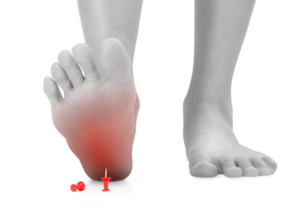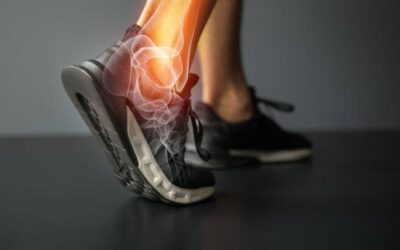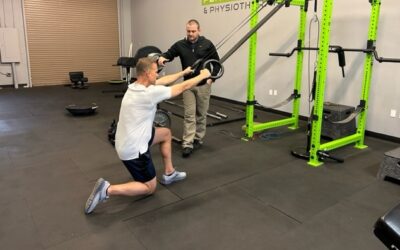 First and foremost, do you know what plantar fasciitis is? The term gets thrown around a lot to describe foot pain. Personally, I have seen this misdiagnosed numerous times. It is being used as a generic term for foot pain, like carpal tunnel is for hand pain.
First and foremost, do you know what plantar fasciitis is? The term gets thrown around a lot to describe foot pain. Personally, I have seen this misdiagnosed numerous times. It is being used as a generic term for foot pain, like carpal tunnel is for hand pain.
So, What Is Plantar Fasciitis?
Plantar Fasciitis is a common, often persistent, kind of repetitive strain injury that typically affects runners, walkers, hikers, and nearly anyone who stands for a living (i.e. cashiers), especially on hard surfaces.
Symptoms include, but not limit to:
- Foot/arch and heel pain.
- Morning foot pain that typically gets slightly/remarkedly better throughout the day.
- Tight, burning, stabbing pain on the bottom of your feet.
This is true that most people recover from “plantar fasciitis” with a little rest, arch support (just some comfortable fitting shoes), and stretching, but not everyone. There are those that are stubborn and become chronic because it is often debilitating and stops you from accomplishing your fitness/activity level goals.
Is it inflammation? No. We are now finding out it is not so much an inflammation process, but more so a degeneration process. There may be some inflammation at the beginning but that quickly changes after the acute phase.
“Uh-oh, Degeneration, Is That Bad?”
Left untreated, it could be bad so it is important not to delay treatment too long. It could make the degenerative area expand.
Why does one get “plantar fasciitis?”
It could be too high/low of an arch. Perhaps, from being overweight. Tight calf muscles might have something to do with it. More so, it could just be your biology. Although, most people liken it to overuse and repetitive motions (i.e. running). There are a lot of runners out there who don’t end up with “plantar fasciitis.” As there are a lot of plausible risk factors for developing “plantar fasciitis”, the most evidence-backed being simply biological factors.
If you think you have “plantar fasciitis”, it is important to get it assessed by a musculoskeletal expert. Physical therapists are musculoskeletal experts who can help you identify if you have tight calves, over/under pronation of your feet, bone spurs, etc. that could be causing your pain. And, most importantly, how to treat it.
Feel free to schedule an appointment by filling out this consult form to sit down and discuss with a musculoskeletal expert, your pain, discomfort, and what it is holding you back from doing. The worst thing you could do about heel/foot pain is ignore it. You risk losing your independence, mobility, and ultimately your will to go out and be active!




